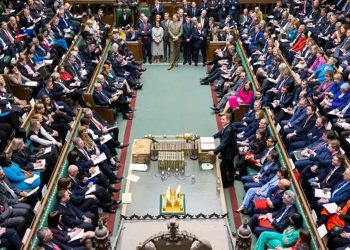GENEVA: On the occasion of International Women’s Day, the Inter-Parliamentary Union (IPU), a UN partner, has said that the global representation of women in Parliament reached a record high in 2020 but progress is “still excruciatingly slow”.
“It gives me great pleasure to announce that for the first time, women now account for more than a quarter of parliamentarians worldwide”, Martin Chungong of IPU, the global organisation of national parliaments, said in launching its latest report at the UN Office in Geneva.
“The global average of women in parliament has now reached 25.5 percent,” he said. The IPU has been tracking women’s participation in parliament for decades, allowing it to measure progress and setbacks.
“While we celebrate and welcome this all-time high, we feel that progress is painstakingly, or even excruciatingly, slow,” he said. “At the current rate, it will take another 50 years before we can achieve gender parity in parliament. And of course, we all agree that this is not tenable, it’s not acceptable”
Following elections in 2020, the global proportion of women in parliament increased by 0.6 points as compared with the previous year. The IPU chief singled out Rwanda, Cuba and the United Arab Emirates for having achieved gender parity, with women accounting for 50 percent or more parliamentary seats.
The IPU advocates for well-designed quotas as the key to progress. In 2020, electoral gender quotas were applied in 25 of the 57 countries having parliamentary renewals. On average, parliaments with quotas elected nearly 12 percent more women to single and lower chambers, and 7.4 percent more women to upper chambers.
Though progress was reported in all regions, the Americas were again on top in 2020, with women making up 32.4 percent of parliamentarians. In Chile, Colombia and Ecuador, the percentage is higher than average.
In Sub-Saharan Africa, Mali and Niger made significant gains in women’s representation despite security challenges. The IPU said these countries are a testament to the fact that women’s role in transition processes is key to their political empowerment.
The proportion of women in parliament is lowest in the Middle East and North Africa region, with 17.8 percent on average. With the exception of New Zealand, the number of women MPs in the Pacific remained consistently low or entirely absent in 2020.
The “Women in Parliament” report shows that the COVID-19 pandemic also influenced elections and campaigning last year. The IPU said online violence against women has become even more widespread, threatening women’s participation in public life. However, the shift to remote, technology-driven parliamentary practices may have a potentially positive long-term impact on women in parliament.



































